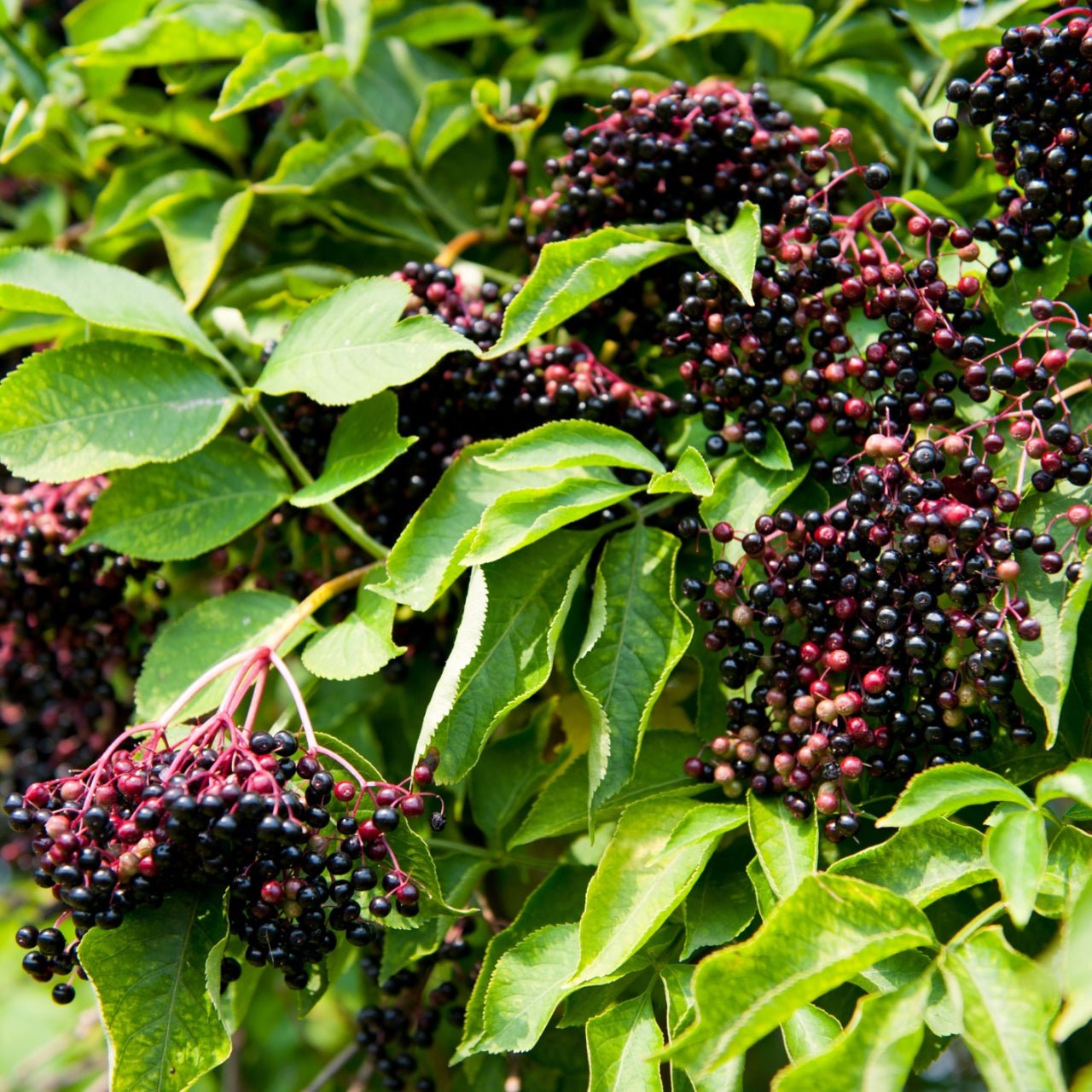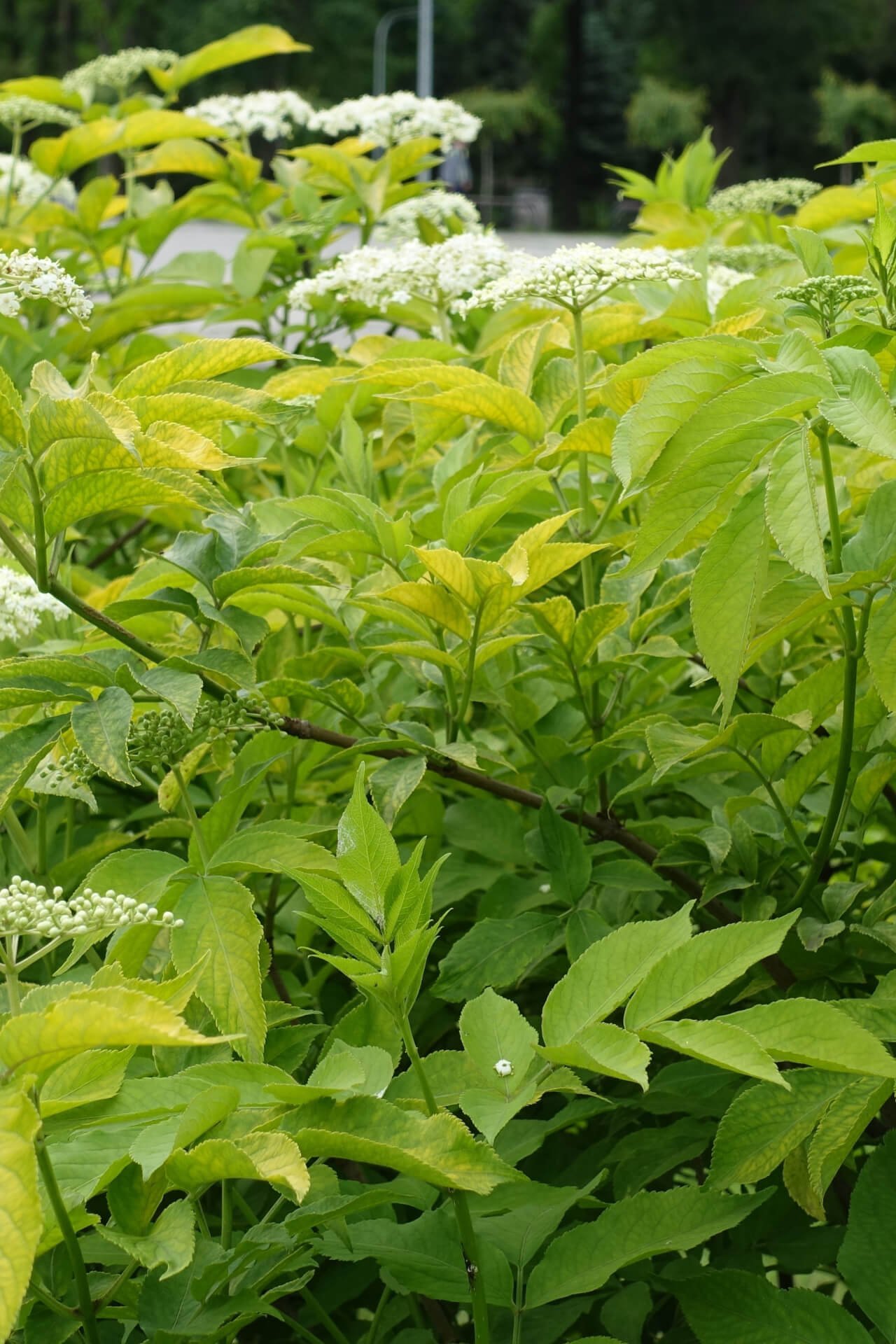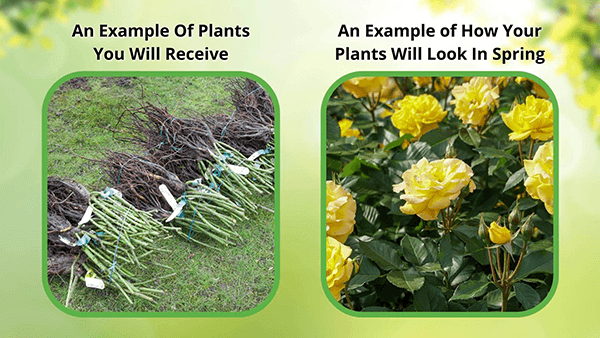



Elderberry Plant
This plant ships:
NowWe sell bare root plants - click here to see what you'll receive
Elderberry Plant - Sambucus
The Elderberry plant is a beautiful shrub that is a great addition to any garden. Known for its medicinal properties, it features lovely white flowers and produces edible berries. This makes it an excellent choice for anyone interested in cultivating a functional garden species.
Elderberry Plant Offers Many Uses
Because of their evolutionary history, elderberries are hardy almost anywhere you put them. They are also native shrub species. This shrub is highly sought after because it attracts wildlife and provides raw inputs for jams and herbal remedies.
Growing And Care Instructions
It is easy to grow and care for, making it a top choice for many homeowners wanting to transform their outdoor spaces. It likes relatively dry and well-maintained soils but is adaptable, with mature shrubs surviving in sunny and shady environments, where necessary.
Seasonal Benefits
These shrubs bloom during the spring and late summer, developing clusters of sweet-smelling white flowers that presage the arrival of dark purple, almost black berries later in the year. These shrubs add variety to gardens, making it more likely that pollinators will start calling the place you plant them home.
Producing and Harvesting
During the late summer, dark berries start to appear on the stalks. Following traditional recipes online, you can harvest these to make various syrups and jams. After the peak seasons, elderberries remain green and attractive for the rest of the year. For this reason, it can provide an attractive backdrop to most garden areas, making it a highly versatile shrub with landscaping appeal.
Sizing And Specs
Most grow between 6 and 12 feet tall and develop bushy, full appearances. Many shrubs live for decades, meaning you won’t need to replant them in years to come. Discover our selection of attractive berry-producing shrubs to keep your garden stunning throughout the year, with bright white blooms in spring and fruits over the summer.
Quality Plants at TN Nursery
Get your elderberry plant in a single box, ready for planting in your garden. It is an Attractive shrub year-round, providing a nice touch for gardens that want an amazing shrub that will give back to the environment.
| Planting zone | [3, 4, 5, 6, 7, 8, 9] |
|---|---|
| Bloom season | Summer |
| Bloom color | White |
| Height At Maturity | Over 10 Feet |






Elderberry Plant
This plant ships:
Now| Planting zone | [3, 4, 5, 6, 7, 8, 9] |
|---|---|
| Bloom season | Summer |
| Bloom color | White |
| Height At Maturity | Over 10 Feet |

